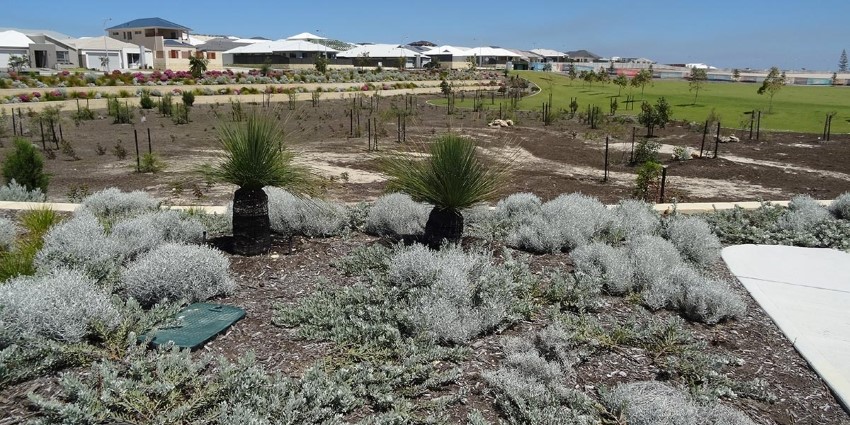The third Kep Katitjin – Gabi Kaadadjan Waterwise action plan 3, released in October 2024, continues to transition Perth into a leading waterwise city by 2030.
Efficiency and innovation will be key to making Gnangara groundwater stretch further and be more sustainable as a resource.
Reducing demand through efficiency:
- increases productivity
- minimises water costs
- avoids or delays the need for new water sources.
Through the Waterwise Council Program, more local councils are becoming more water efficient, improving turf maintenance practices and adopting new irrigation and water monitoring technologies. We have a Waterwise Irrigation Training Program for Gold status Waterwise Councils in partnership with Water Corporation and Irrigation Australia Limited Western Australia.
The State Government is also in a joint initiative with the Water Corporation to provide funding to local councils with large groundwater entitlements that are most at risk from urban heat island effect. This funding is to help them reduce their groundwater use in line with the plan.
Some developers, schools and businesses are also succeeding through water-sensitive urban design. Good design is essential for reducing water use as well as for managing stormwater and enhancing recharge. The department is advising land developers in Perth’s new growth areas on opportunities to access tradeable water entitlements, water sensitive urban design and, where needed, options for additional water supplies.
Householders are helping to save groundwater by being more waterwise in their homes and gardens. Waterwise gardens include native and drought-tolerant plants, mulching, and efficient, well-maintained irrigation systems. One of the great side benefits of these practices is the simple fact that they save money.
The Be Groundwater Wise website provides information to help garden bore owners understand their bores, the importance of groundwater and how to be waterwise with bores, irrigation systems and gardens. State Government is further assisting householders to make their gardens more waterwise through seasonal education campaigns and incentives to invest in smart irrigation technology and spring sprinkler system check-ups.
Some agricultural businesses have become very efficient through use of contemporary technologies, irrigation schedules, improved maintenance and better management. The combination of crop types, crop areas and the type of irrigation systems used can also boost water efficiency. State Government has invested $600,000 in a North Wanneroo water use efficiency grants program. A further $1 million has been invested in a water use efficiency grants program for horticulture outside of North Wanneroo that are affected by reductions to licences under the Gnangara plan, including the Swan Valley.
Leaders in water efficiency and innovation are showing that we can all adjust to a drying climate by rethinking how we use water.
Read about the other ways we are Securing the future of Gnangara groundwater.
Liveable cities with less water

The City of Wanneroo and the Department of Water and Environmental Regulation have developed the North West Corridor water supply strategy so that the limited groundwater in the 9000-hectare north-west urban growth corridor in Perth can be shared between public water supply and the irrigation of parks, gardens and recreational areas.
The City of Nedlands, in partnership with the Department of Water and Environmental Regulation and the University of Western Australia, has studied new water-saving technologies to see which are most cost effective and practical to implement for public open space.


